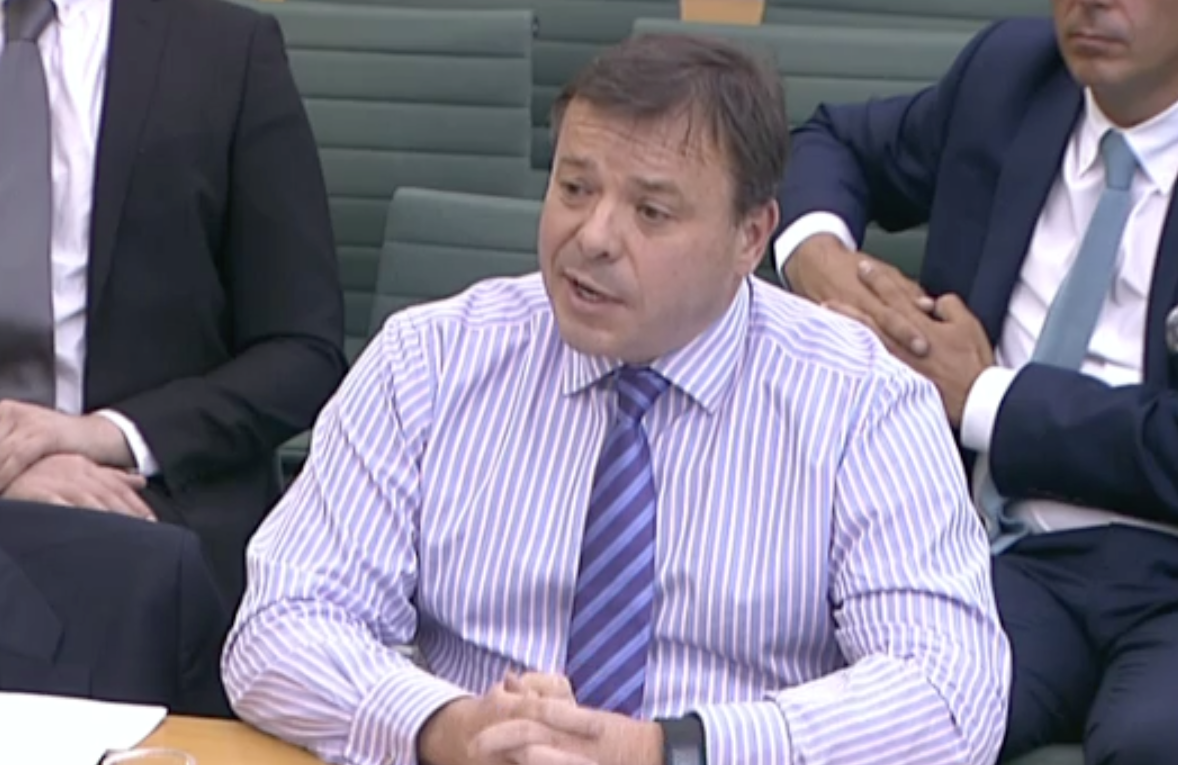Families losing £150 a month is a price worth paying for Brexit, Leave.EU campaign chief says
Arron Banks, the founder of Leave.EU, said he would 'pay almost any price to be away from' the EU

Britain should leave the European Union, even if Treasury figures suggesting families will lose an average of £150 a month turn out to be true, the head of one of the Leave campaigns has said.
Arron Banks, co-founder of Leave.EU, appeared before the Treasury Select Committee yesterday to explain the economic costs and benefits of the European Union.
The millionaire businessman and former Tory-turned-Ukip donor was asked by Labour MP Rachel Reeves whether the loss of £150 per household was a “price worth paying”.
“I think it’s 21p an hour, about £5 a day, £150 a month – I think many of our constituents would regard £150 a month as quite a substantial amount of money – money they couldn’t afford to be without,” she said.
“But you would say to those people that £150 a month is a price worth paying for leaving the European Union?”
After a minute of grilling, Mr Banks replied: “This isn’t about pounds and pence, this is about our democracy.
“I would say the figure is massively incorrect, but if it was to be the case I would still advocate leaving.”
Explaining his view on the future of the EU, he added: “Economically it’s a disaster and I would pay almost any price to be away from it.”
Mr Banks has bankrolled the Leave.EU campaign, which narrowly missed out on the designation as the official campaign to Vote Leave.
What has the EU ever done for us?
Show all 7His statement to the MP comes as the OECD warns that leaving the pan-European bloc would have a persistent tax-like effect on British households.
The international organisation said families would lose £2,200 by 2020 because of Brexit, if it went ahead.
“Brexit is like a tax, equivalent to missing out on about one month’s income within four years, but then it carries on to 2023, 2030,” Ángel Gurría, the OECD’s general secretary, told BBC Radio 4’s Today programme.
“There is a consistent loss: that tax is going to be continued to be paid by Britons over time. What they would have had in their pocket to spend, they would not have. Therefore it is as real as tax.”
Ukip’s Nigel Farage, however, dismissed the calculations, arguing that "markets, not failed politicians" decided trade.
Britain will vote in a referendum on whether to remain or leave the European Union on 23 June this year.
Subscribe to Independent Premium to bookmark this article
Want to bookmark your favourite articles and stories to read or reference later? Start your Independent Premium subscription today.

Join our commenting forum
Join thought-provoking conversations, follow other Independent readers and see their replies